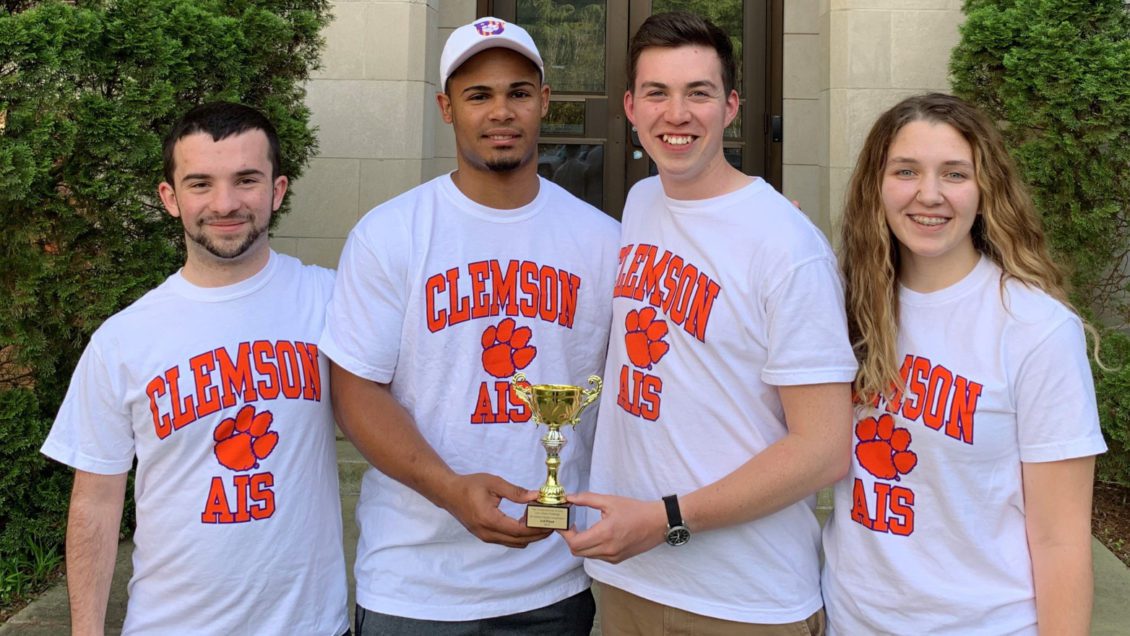Artificial intelligence has the potential to improve one’s quality of life. Finding ways to bring that potential to fruition is the challenge.

A team of management and information systems students at Clemson University was up to that challenge in a case study competition against 15 other universities recently, placing third in their quest for finding a solution to improve patient well-being through artificial intelligence.
The Computational Society Case Study Challenge was held at Temple University in conjunction with the Association for Information Systems (AIS) annual student leadership conference in Philadelphia. Teams from 16 universities were charged with exploring how technology in the health-care field could improve organizational efficiency or affect quality of life.
Madison Leopard, president of the Clemson Student Chapter of AIS, said teams chose between three case-study scenarios. The Clemson team chose to find ways to improve patient diagnosis times and accuracy through artificial intelligence.
“All of the teams received their case study and developed their solutions prior to the conference. Each team’s case study was judged before the conference and the five finalists presented their plans before judges at the conference,” the Boiling Springs senior said. “Where we excelled and why I believe we finished as well as we did is because our conclusions were backed with real data from technology that already exists. Essentially, our solution was very forward-thinking and revealed the potential for artificial intelligence to improve health care at home and third-world countries.”
In addition to Madison, team members included Tristan Whaley, junior computer information systems major; David de Jesus, freshman computer information systems major and Anthony Angone, freshman computer science major. Marten Risius, assistant professor of management, was the team’s faculty advisor.
The team’s 20-minute presentation of their 12-page case solution used the devastating 2015 earthquake in Nepal that claimed nearly 9,000 lives to illustrate how artificial intelligence could have been utilized to better address that tragedy.
“One example of existing technology we recommended was using drones to deliver medical supplies and to proactively map imagery of different areas of the country to help in relief efforts,” Madison said. “But we also recommended technologies that would improve patient diagnosis times and accuracy.”
Madison said the technologies they suggested to improve patient diagnoses would supplement what already exists and had the capability to sift through medical histories and analyze patterns of patients tests with similar conditions to improve the quality and accuracy of a diagnosis.
“For example, the technologies could examine x-ray and CAT scan results of others to determine those patients’ outcomes,” Tristan added. “That information would provide data without bias or preconceived notions and support doctors’ diagnosis decisions. With faster diagnosis times, patient health improves, and a doctor’s time can be utilized for further innovative research.”
The team feels their solutions show that artificial intelligence can move health care from a one-size-fits-all diagnosis, to customized and individualized health-care solutions. “It would result in a more proactive versus reactive approach to health care,” Madison added.
Other finalists in the international competition were first-place winner Brigham Young University, the University of Georgia, Georgia State University and the University of Utah.
# # #
Get in touch and we will connect you with the author or another expert.
Or email us at news@clemson.edu

